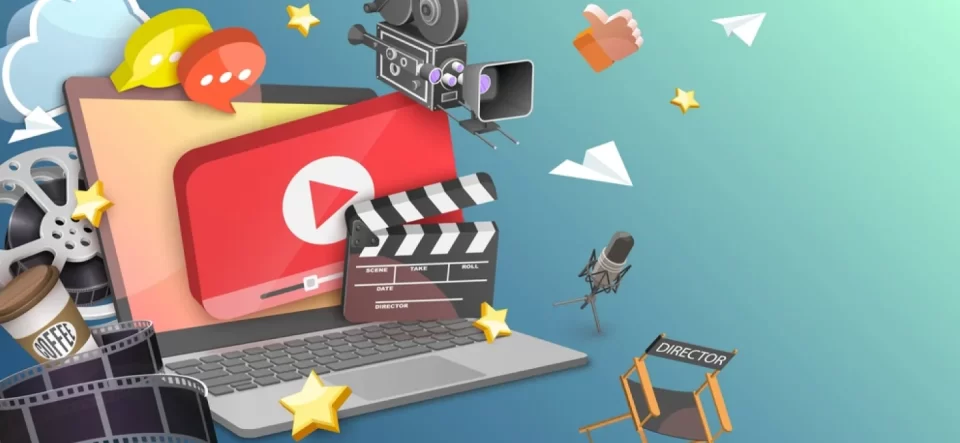In today’s digital age, video content has become a dominant force across various platforms, from social media to streaming services. Content creators, filmmakers, and video editors are continually seeking ways to streamline their processes, enhance quality, and captivate audiences. Enter artificial intelligence (AI), a technology that has rapidly transformed the landscape of video content creation and editing.
The convergence of AI and video content creation has ushered in a new era of possibilities. From pre-production to post-production and even content personalization, AI is revolutionizing how videos are conceptualized, produced, and distributed. In this article, we’ll delve into the impact of AI on video content creation and editing, exploring its various facets, and providing real-world examples of its applications.
Understanding AI in Video Content Creation
AI Defined: At its core, AI refers to the development of computer systems that can perform tasks typically requiring human intelligence. In the context of video content creation, AI encompasses a range of technologies, including machine learning, computer vision, and natural language processing.
AI’s Role: AI plays a multifaceted role in video content creation, from automating repetitive tasks to enhancing creativity and decision-making.
AI in Pre-Production
Automated Research and Idea Generation
AI-powered tools can scour the internet for relevant data, trends, and audience insights, aiding creators in crafting content that resonates. For instance, AI-driven algorithms can analyze social media trends and suggest video concepts based on popular topics, keywords, and user engagement data.
Budget Optimization
AI algorithms can assist in budget planning by analyzing historical data, market trends, and production costs. This enables content creators to make informed decisions about resource allocation and investment.
AI in Production
AI’s role in video production is far-reaching, but the ability to generate AI video content stands out as a game-changer. It simplifies the filming process, expedites production timelines, and empowers creators to explore new dimensions of creativity. As AI continues to evolve, we can expect AI-generated video to play an increasingly prominent role in the world of content creation.
Whether it’s producing marketing materials, crafting immersive experiences, or bringing animated worlds to life, AI is reshaping the way we conceive and execute video production, making it more efficient and imaginative than ever before.
Real-time Feedback
AI technologies, integrated into cameras and equipment, provide instant feedback to directors and cinematographers. This feedback includes suggestions for adjusting lighting, framing, and angles, resulting in improved shot quality.
Virtual Sets and Augmented Reality (AR)
AI-driven virtual sets and AR technologies allow creators to transport viewers to fantastical worlds without leaving the studio. These innovations eliminate the need for costly physical sets and extensive post-production work.
AI in Post-Production
Automated Video Editing
AI algorithms can analyze raw footage, identify key moments, and assemble them into a cohesive video. This not only saves time but also aids in crafting engaging narratives.
Real-world Example: A marketing agency used AI-driven editing tools to create personalized video ads for different target audiences, resulting in a 25% increase in click-through rates.
Visual Effects and CGI
AI-powered tools excel at generating realistic visual effects and CGI. Whether it’s creating lifelike creatures or enhancing explosions, AI algorithms can achieve stunning results with remarkable efficiency.
AI in Content Enhancement
Upscaling and Noise Reduction
AI can enhance video quality by upscaling lower-resolution footage and removing noise or artifacts. This capability is particularly valuable when repurposing older content for modern platforms.
Audio Improvement
AI-driven audio enhancement tools can clean up noisy audio tracks, improve voice clarity, and even generate realistic voiceovers. This ensures that the auditory experience matches the video’s visual quality.
AI in Personalization
Audience Analysis and Segmentation
AI algorithms can analyze user data to identify audience preferences, demographics, and behavior patterns. This information allows content creators to tailor their videos for maximum impact.
Content Recommendations
AI-powered recommendation engines have become a staple of streaming services. These algorithms analyze a user’s viewing history and preferences to suggest content tailored to their tastes.
Impact: A leading streaming platform reported a 20% increase in user retention after implementing AI-based content recommendations.
Challenges and Ethical Considerations
While AI offers transformative benefits in video content creation and editing, it’s not without challenges:
Bias and Fairness
AI algorithms can inherit biases present in training data, leading to discriminatory outcomes. Content creators must be vigilant to avoid reinforcing stereotypes or propagating biases.
Ethical Dilemma: A news organization faced backlash when its AI-driven content recommendations favored sensationalism and clickbait.
Deepfakes
The ability to manipulate video and audio with AI has raised concerns about deepfakes—realistic, yet entirely fabricated content. Deepfakes have the potential to deceive and manipulate audiences.
Future Trends and Innovations
The world of AI in video content creation and editing continues to evolve. Here are some anticipated trends and innovations:
AI-Generated Content
Advancements in AI may lead to the creation of entirely AI-generated videos, from scripting to final production, revolutionizing content creation.
Prospects: AI-generated content could result in cost-effective, high-quality videos on-demand.
Real-time Collaboration
AI-driven collaboration tools will enable remote teams to work seamlessly on video projects, boosting efficiency and creative collaboration.
Future Scenario: Video editors from different continents collaborate in real-time, optimizing workflows and speeding up project delivery.
Conclusion
Artificial intelligence has emerged as a formidable ally for content creators and video editors, reshaping every stage of the production process. From automated editing to personalized recommendations, AI empowers creators to unlock new levels of creativity and efficiency. However, it also raises ethical concerns that must be addressed responsibly.
As AI technologies continue to advance, we can expect even more groundbreaking developments in video content creation and editing. The future promises an exciting fusion of human creativity and AI-driven innovation, where the possibilities are limited only by our imagination.

